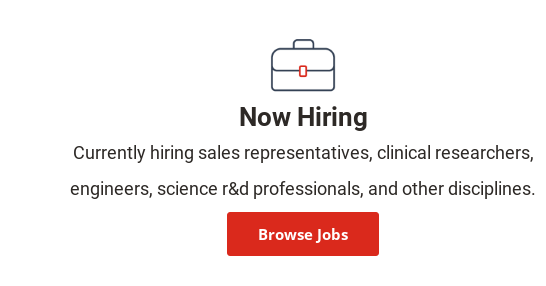What Workplace Flexibility Means to Your Employees
Here are the aspects of workplace flexibility that can be a great deal for your employee
Does your organization provide flexible working options? Workplace flexibility is discussed so much in the offices today that it’s become a buzzword. However, there can be a difference in opinion of what employers think flexibility is and what employees deem flexibility to mean. Some organizations within life sciences industries can have more difficulty offering flexible working options because they operate in traditional research and laboratory environments. In those cases, employees must be onsite to utilize the materials and aspects being studied.
A recent BioSpace poll asked life sciences professionals, “What does having flexible work options mean to you?” The responses were assessed and grouped by commonalities to provide insight for companies. Many managers and executives often wonder why workplace flexibility is even important. The poll respondents shared that having flexibility can increase their productivity, allow them to focus more at work and can be the reason why they choose to work for a company. One poll participant described flexibility as “the difference between rejecting and accepting an interesting job opportunity.” Here are the top three aspects of what flexibility means for life sciences professionals.
Top 3 Aspects of Workplace Flexibility
Remote & Telecommute Options
Offering remote and telecommute workplace flexibility for employees can be seen as an extremely beneficial incentive. Not having to pay for transportation and spend hours in long commutes can allow employees to spend more time actually doing their job. While making a position completely remote might not be an option, could your organization offer the option to telecommute once a week? Some comments from poll participants highlighted this area:
“The ability to telecommute a couple of days a week.”
“My company is focused on what I accomplish, not when I’m in the office.”
“It means everything. Remotely working, work life balance, not stuck in traffic sometimes or always spending more time driving etc…”

Ability to Work Non-Traditional Hours
In the United States, the concept of a job being a commitment from 9 a.m. to 5 p.m. is pretty standard. However, this schedule might not be the best choice for some employees. Many organizations now offer the option for employees to come in before 9am, and other staff to come in later and leave after 5pm. Where could your company adjust scheduling so there are more options for employees with different circumstances? Life sciences professionals who responded to the poll mentioned:
“Not having rigid “on-site” hours (as long as you are productive, you should be able to work the hours that are better for you).”
“Flexible work options means flexible hours and location.”
“Flexible work options mean to me that the research/scientific staff should have the option to pick flexible working hours as long as the work gets done and none of the meetings are missed.”
Freedom to Handle Personal Issues as Needed
Almost everyone has had a personal or family emergency come up at some time throughout their career. If you work for a strict organization, it can become a struggle to ask for a schedule change or time off to handle unplanned issues. This makes workplace flexibility null and void in some organizations. Some employees even have anxiety around asking for time adjustments to attend medical appointments for them or their children. A few poll participants emphasized the following points:
“One should have the freedom to leave early or come in late if there is a personal need, but to ensure that the project meets the timelines.”
“[I’m] Able to deal with personal issues (i.e. appointments/car repair/kids activities).”
“Work is part of life and should not obstruct normal living. It should complement it and allow for a balance of getting the things you need to do for work and life, as long as it is not abused.”
The concept of workplace flexibility can seem abstract or unattainable for many organizations. BioSpace conducted a poll to discover what flexible working options mean to life science professionals. Respondents mentioned having remote/telecommute options, the ability to work non-traditional hours, and freedom to handle personal issues as part of their definitions. Offering flexible working options such as the one’s described can help improve employee productivity, engagement, and recruiting efforts. What is one flexible working incentive that your organization can propose right now?
Porschia Parker is a Certified Coach, Professional Resume Writer, and Founder of Fly High Coaching. (https://www.fly-highcoaching.com) She empowers ambitious professionals and motivated executives to add $10K on average to their salaries.
